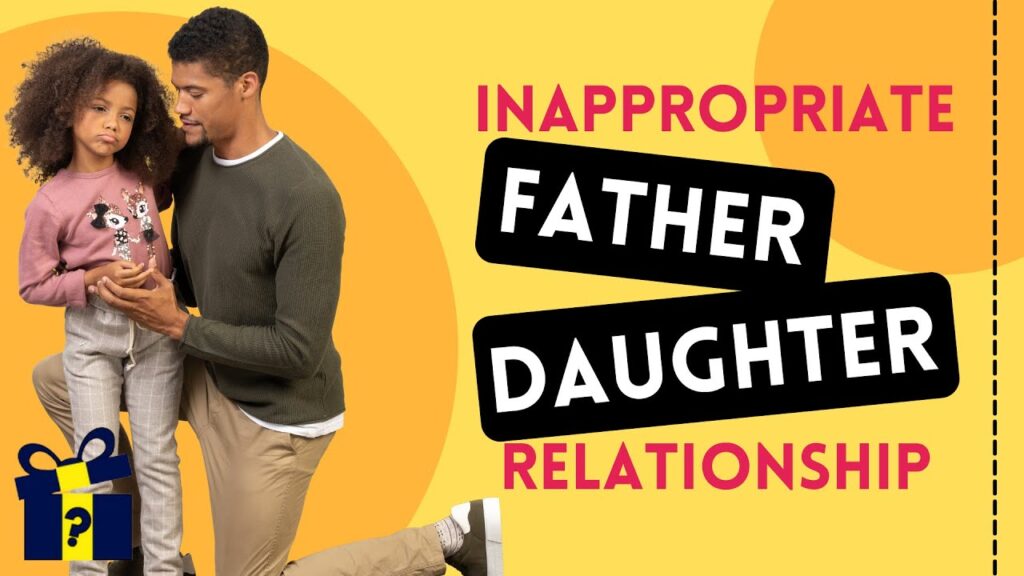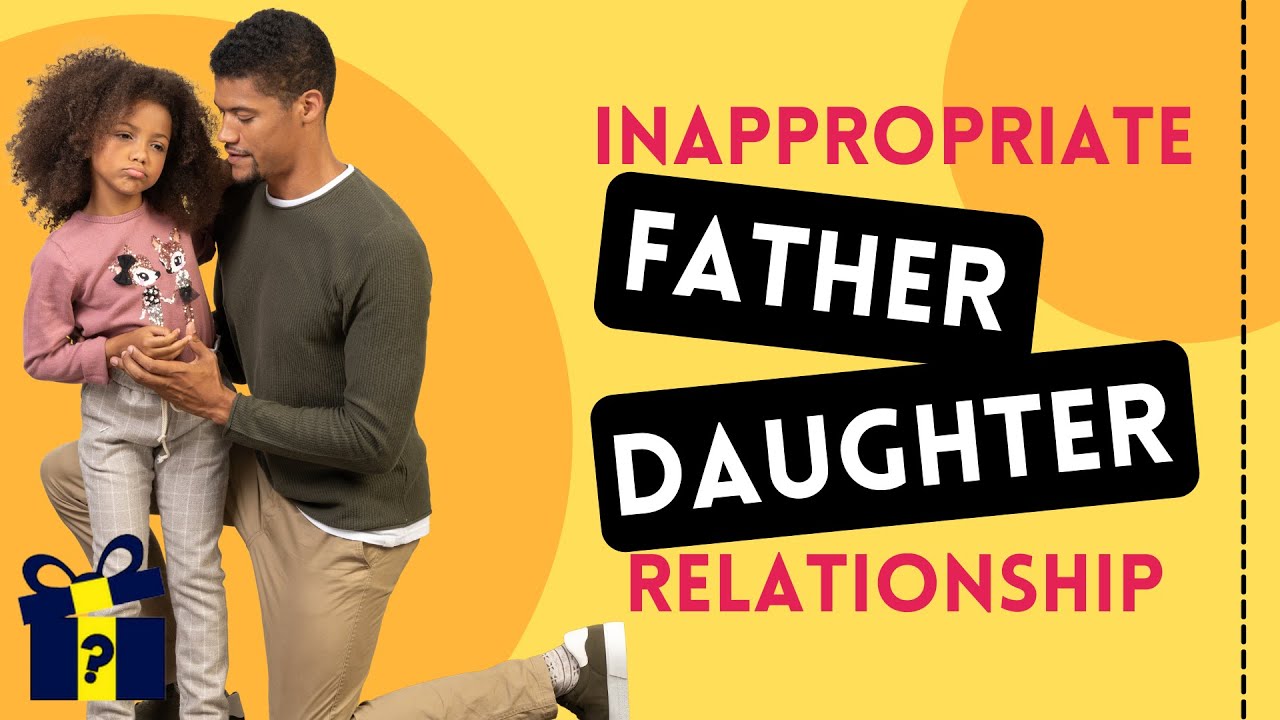
Navigating the Complexities: When You Don’t Want a Relationship with Your Adult Daughter
The parent-child relationship, often idealized, can sometimes become strained, particularly as children transition into adulthood. While societal expectations often dictate close familial bonds, the reality is that not all relationships are healthy or fulfilling. For some parents, the difficult decision arises: “I don’t want a relationship with my adult daughter.” This is a complex and emotionally charged situation, warranting careful consideration and a nuanced understanding of the factors involved.
This article aims to explore the various reasons why a parent might choose to distance themselves from their adult daughter, the potential consequences, and strategies for navigating this challenging terrain. It’s crucial to acknowledge that this decision is rarely taken lightly and often stems from deeply rooted issues.
Understanding the Reasons Behind the Estrangement
Several factors can contribute to a parent’s desire to sever or limit contact with their adult daughter. These reasons are often multifaceted and deeply personal.
Toxic Behavior and Abuse
One of the most common reasons for estrangement is toxic behavior. This can manifest in various forms, including:
- Verbal abuse: Constant criticism, insults, and demeaning language can erode a parent’s self-esteem and create a hostile environment.
- Emotional manipulation: Attempts to control or guilt-trip the parent can be emotionally draining and damaging.
- Financial exploitation: Taking advantage of the parent’s finances or demanding unreasonable financial support can lead to resentment and distrust.
- Physical abuse: In extreme cases, physical violence is a clear reason for severing ties.
If an adult daughter consistently engages in these behaviors, a parent may choose to protect their mental and emotional well-being by limiting or eliminating contact. It’s a matter of self-preservation. The statement “I don’t want a relationship with my adult daughter” often arises from a place of pain and a need to establish healthy boundaries.
Unresolved Conflict and Past Trauma
Past trauma or unresolved conflicts can significantly impact the parent-daughter relationship. If these issues have not been adequately addressed, they can fester and lead to resentment and animosity. Examples include:
- Childhood neglect or abuse: If the daughter experienced neglect or abuse during childhood, she may harbor resentment towards the parent.
- Parental favoritism: Perceived or real favoritism towards other siblings can create lasting resentment.
- Differing values and beliefs: Significant differences in values, beliefs, and lifestyle choices can lead to conflict and estrangement.
While therapy and open communication can sometimes help bridge these divides, if reconciliation proves impossible, a parent might decide that maintaining distance is the only way to preserve their own peace of mind. It’s important to acknowledge that sometimes, despite best efforts, the wounds are too deep to heal. The feeling of ‘I don’t want a relationship with my adult daughter‘ can be a manifestation of this unhealable rift.
Lack of Respect and Boundaries
Respect is a fundamental element of any healthy relationship. When an adult daughter consistently disrespects her parent’s boundaries, opinions, or personal space, it can strain the relationship to the breaking point. This can include:
- Constant criticism: Unsolicited and negative feedback can be demoralizing.
- Ignoring boundaries: Repeatedly crossing personal boundaries, such as showing up unannounced or interfering in the parent’s personal life.
- Disrespectful communication: Using sarcasm, condescending language, or dismissive tones.
Establishing and maintaining healthy boundaries is crucial for any relationship, especially between parents and adult children. If these boundaries are consistently violated, a parent may feel compelled to create distance. The sentiment of ‘I don’t want a relationship with my adult daughter‘ can be a direct result of these boundary violations.
Mental Health Issues
Mental health issues, both in the parent and the daughter, can significantly impact the relationship. Untreated mental illness can lead to erratic behavior, communication difficulties, and emotional instability. For example:
- Personality disorders: Certain personality disorders can make it difficult to maintain healthy relationships.
- Addiction: Substance abuse can lead to destructive behaviors and strained relationships.
- Depression and anxiety: These conditions can impact communication and emotional availability.
While empathy and support are important, a parent is not obligated to endure abuse or neglect resulting from their daughter’s mental health challenges. Protecting oneself from harm is paramount. The decision to say “I don’t want a relationship with my adult daughter” in these circumstances is often a necessary act of self-care.
Consequences of Estrangement
Severing ties with an adult daughter can have significant consequences, both for the parent and the daughter. It’s crucial to consider these potential ramifications before making a final decision.
Emotional Impact
Estrangement can be emotionally painful for both parties. Parents may experience feelings of guilt, sadness, and regret. They may also grieve the loss of the relationship they once had or hoped to have. The daughter may experience feelings of abandonment, anger, and confusion.
It’s important to acknowledge these emotions and seek support from therapists, friends, or support groups. Dealing with the emotional fallout of estrangement requires time and self-compassion.
Social Stigma
Estrangement can be a socially isolating experience. Society often expects families to maintain close ties, and deviating from this norm can lead to judgment and misunderstanding. Parents may feel ashamed or embarrassed to discuss their situation with others.
Finding supportive individuals who understand the complexities of family dynamics can be invaluable. Remember that you are not alone, and many other parents have faced similar challenges.
Impact on Other Family Members
Estrangement can also impact other family members, such as siblings, grandchildren, and extended family. These individuals may feel caught in the middle and forced to choose sides. It’s important to communicate openly and honestly with other family members about your decision, while respecting their own feelings and perspectives.
Maintaining healthy relationships with other family members can provide a source of support during this difficult time.
Navigating the Estrangement
If you’ve decided that severing or limiting contact with your adult daughter is the best course of action, it’s important to navigate the situation with intention and self-awareness.
Establish Clear Boundaries
Clearly communicate your boundaries to your daughter. This may involve specifying the type and frequency of contact you are willing to have, or stating that you no longer wish to have any contact at all. Be firm and consistent in enforcing these boundaries.
Documenting these boundaries in writing can be helpful in preventing misunderstandings and reinforcing your position.
Seek Professional Support
Therapy can be invaluable in processing the emotions associated with estrangement and developing coping strategies. A therapist can provide a safe and supportive space to explore your feelings, identify unhealthy patterns, and develop healthier relationship dynamics.
Consider individual or family therapy, depending on your specific needs and circumstances.
Focus on Self-Care
Prioritize your physical and emotional well-being. Engage in activities that bring you joy and relaxation, such as exercise, spending time in nature, or pursuing hobbies. Practice self-compassion and be kind to yourself during this challenging time.
Remember that you deserve to be happy and healthy, and prioritizing your own well-being is not selfish.
Consider Mediation
In some cases, mediation may be a helpful tool for facilitating communication and resolving conflict. A neutral mediator can help you and your daughter explore your perspectives, identify areas of agreement, and develop a plan for moving forward.
Mediation is not always appropriate, particularly in cases of abuse or severe conflict. However, it can be a valuable option for families who are willing to engage in open and honest communication.
Acceptance and Moving Forward
Ultimately, accepting the reality of the situation is crucial for moving forward. This may involve accepting that the relationship with your daughter may never be what you hoped it would be, or that reconciliation may not be possible. Allow yourself to grieve the loss of the relationship and focus on building a fulfilling life for yourself. Saying “I don’t want a relationship with my adult daughter” is a difficult decision, and acceptance is a key part of the healing process.
Focus on nurturing other relationships in your life, pursuing your passions, and creating a life that brings you joy and fulfillment. While the pain of estrangement may linger, it does not have to define your future. Remember that you are capable of healing and building a meaningful life, even without a relationship with your adult daughter. It’s about recognizing that the feeling of ‘I don’t want a relationship with my adult daughter‘ is valid and that you have the right to prioritize your well-being. The decision to say, “I don’t want a relationship with my adult daughter” is a personal one, and it’s crucial to honor your own needs and boundaries. If you don’t want a relationship with my adult daughter, seeking support and focusing on self-care can help you navigate this challenging situation. Making the statement, “I don’t want a relationship with my adult daughter” is a step towards prioritizing your own mental and emotional health. If you genuinely feel that “I don’t want a relationship with my adult daughter“, it’s important to acknowledge and act upon that feeling in a healthy and responsible way. Remember, deciding “I don’t want a relationship with my adult daughter” is a complex choice with significant emotional weight. The phrase ‘I don’t want a relationship with my adult daughter‘ reflects a deep and often painful situation. If you find yourself thinking ‘I don’t want a relationship with my adult daughter,’ know that you’re not alone in this complex experience. Acknowledging that ‘I don’t want a relationship with my adult daughter‘ is a crucial first step towards healing and setting healthy boundaries. The feeling of ‘I don’t want a relationship with my adult daughter‘ can be overwhelming, but it’s essential to prioritize your well-being. If you’re thinking, ‘I don’t want a relationship with my adult daughter‘, remember to seek support and be kind to yourself during this difficult time. [See also: Setting Healthy Boundaries with Adult Children] [See also: Coping with Estrangement from Family] [See also: The Impact of Toxic Family Dynamics]

